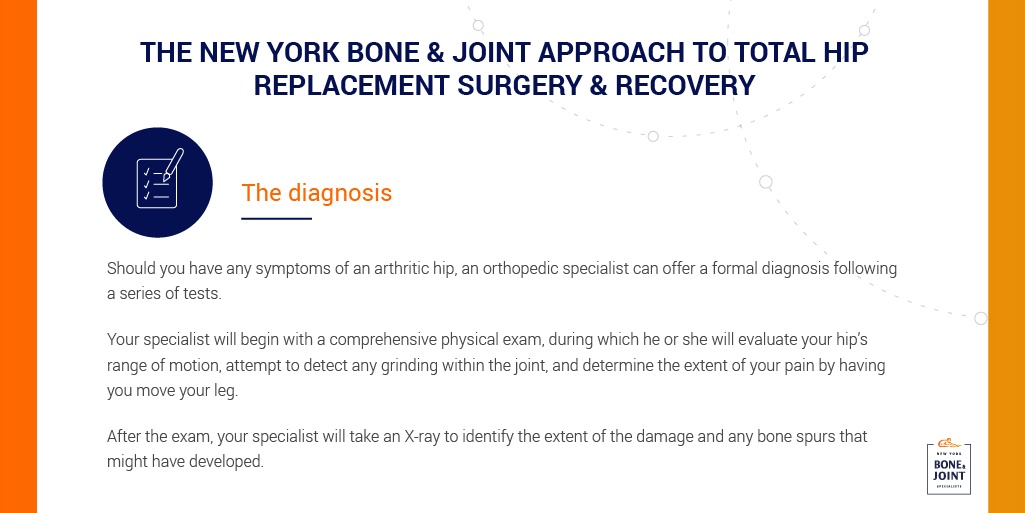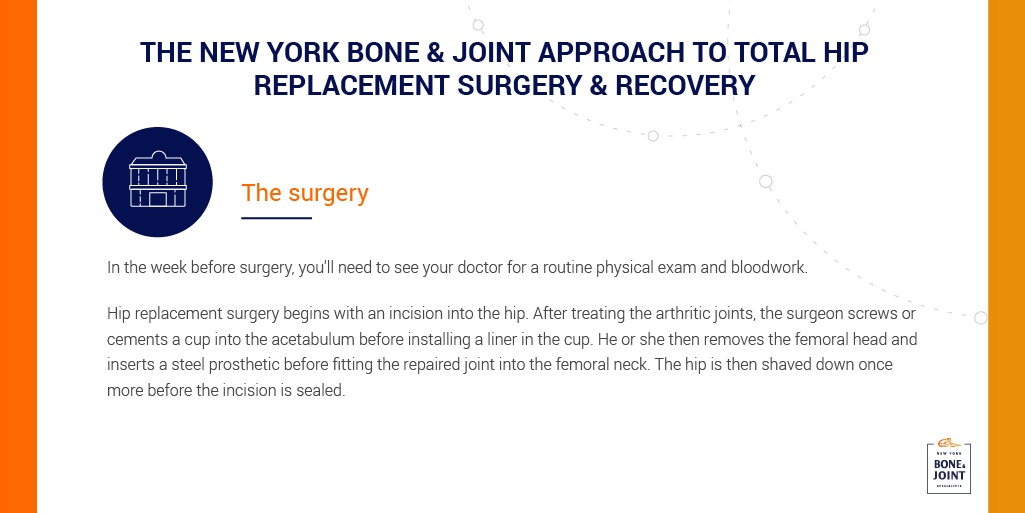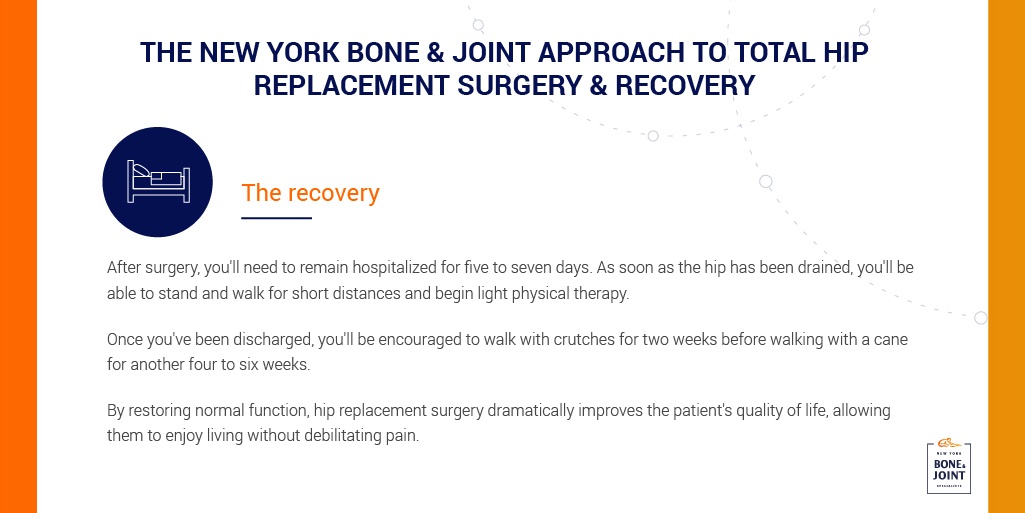WHAT IS TOTAL HIP REPLACEMENT?
A hip replacement entails the removal of the hip joint and the insertion of a prosthetic device, generally made of steel or plastic. It’s most commonly performed to relieve the symptoms of advanced arthritis in the hip.
HIP REPLACEMENT SYMPTOMS
As with any arthritic joint, common symptoms of an arthritic hip include persistent pain, a feeling of general stiffness, a catching or grinding sensation when walking, and a limited range of motion in the affected hip. The pain is usually present in the groin, though it can extend into the buttocks or knee.
HIP REPLACEMENT DIAGNOSIS

Should you have any of these symptoms, an orthopedic specialist can offer a formal diagnosis following a series of tests. Your specialist will begin with a comprehensive physical exam, during which he or she will evaluate your hip’s range of motion, attempt to detect any grinding within the joint, and determine the extent of your pain by having you move your leg. After the exam, your specialist will take an X-ray to identify the extent of the damage and any bone spurs that might have developed.
CAUSES REQUIRING TOTAL HIP REPLACEMENT SURGERY
While arthritis is the most common reason for hip replacement surgery, any activity or condition resulting in the gradual wearing of the labrum in the hip can create a need for it as well. Some of these causes include:
- Obesity
- Repetitive running or jumping
- Previous injury that affects the stability of the joint
- Hip dysplasia
TOTAL HIP REPLACEMENT SURGERY
Hip replacement surgery begins with an incision into the hip, through which the surgeon prepares the acetabulum and femoral head.

After treating the arthritic joints, the surgeon screws or cements a cup into the acetabulum before installing a plastic, metal, or ceramic liner in the cup. He or she then removes the femoral head and inserts a steel prosthetic before fitting the repaired joint into the femoral neck. The hip is then shaved down once more before the incision is sealed.
In the week or so before surgery, you’ll need to refrain from smoking and taking anti-inflammatories, herbal or naturopathic medications. You’ll also need to see your doctor for a routine physical exam and bloodwork to ensure that you don’t have any undetected conditions that might interfere with surgery.
After surgery, you’ll need to remain hospitalized for another five to seven days, during which several post-operative tests will be administered to ensure that vital functions have not been affected. While you might experience heavy pain, you’ll have an IV drip to alleviate it. As soon as the hip has been drained, you’ll be able to stand and walk for short distances and begin light physical therapy.
Once you’ve been discharged, you’ll be encouraged to walk with crutches for two weeks before walking with a cane for another four to six weeks.
TOTAL HIP REPLACEMENT RECOVERY TIME

As with any surgery, hip replacement recovery times can vary widely, but most patients regain normal function within four to six weeks of the procedure. All patients should avoid bending, twisting, or turning the repaired hip for at least several months, since these motions could result in a dislocated hip. Walking up stairs as little as possible, sitting on upright chairs, and “us[ing] an elevated toilet seat” can all protect the affected hip from these strains, ensuring a quicker recovery.
WHAT TO EXPECT AFTER TOTAL HIP REPLACEMENT SURGERY?
Designed for durability, a replaced hip can last for as long as twenty years. Hip replacement surgery alleviates pain, reduces inflammation, and improves the hip’s range of motion. By restoring normal function, hip replacement surgery dramatically improves the patient’s quality of life, allowing them to enjoy living without debilitating pain. Should more conservative treatments fail, it’s the most effective long-term solution for any patient with chronic hip pain.
If you experiencing chronic hip pain, there are many treatment options available that can get you back on track in no time.
_________________________________
EXPERIENCING PAIN? DO YOU HAVE AN INJURY?
Our Specialists are here to help.
Book an appointment with NYC’s best orthopedic specialists to discuss your condition. Fill out the form below and you will receive a call from our office within 5-10 minutes. We’ll book an appointment at a time and location that work for you, and send you a reminder by email.









